(Article has been translated from Japanese, such that quotes from English speakers have been translated first into Japanese and then back into English. This may result in differences in nuance.)
The Genron NPO held its third Japan-U.S. Dialogue public forum in Tokyo on January 20, 2020. Ten guests with experience in the fields of diplomacy, security and trade came together to discuss the consequences of current U.S. policy regarding China, and the role that U.S. allies like Japan can play.
Peace in Northeast Asia and Japan-U.S. cooperation in maintaining the global liberal order
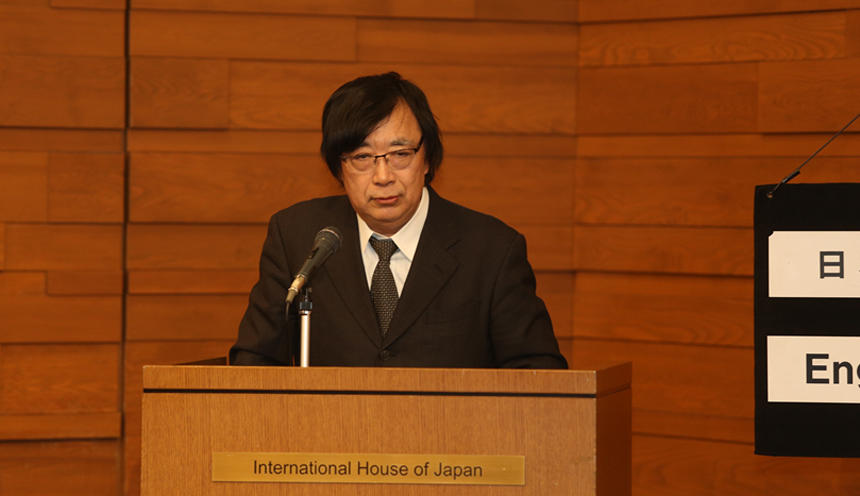
Yasushi Kudo, President of The Genron NPO, opened the public forum by describing the two goals to holding this day of discussion.
Kudo began by explaining that on the following day, the 21st, Genron would be hosting the Asia Peace Conference, a multilateral conference between representatives from Japan, the U.S., China and the Republic of Korea. He described how Northeast Asia faces numerous risks, and there is little stability between the major powers. However, there is still no framework in place for multilateral dialogue aimed at crisis management or trust building, or for building a sustainable peace in the region, and the Asia Peace Conference is a historic attempt to create a framework for such public dialogue between Japan, the U.S., China, and Korea. Kudo stated that the Japan-U.S. Dialogue offered an opportunity for the two allies to come together ahead of time and coordinate how each aims to work towards peace in the region.
The second goal of this day of discussions was to address the friction between the U.S. and China. With the confrontation unlikely to end soon, questions are being raised about Japan's position as an ally of the U.S., but Kudo emphasized that the ultimate end result should be a world of reciprocity, in which all players, including the U.S. and China, compete on a fair and even playing field.
Session One was launched by Clyde V. Prestowitz Jr.. Prestowitz once served as U.S. negotiator for the Japan-U.S. Structural Impediments Initiative in the 1980s, and is now President of the Economic Strategy Institute. He described the transition in the U.S. view of China.
The U.S. View: Betting on economic liberalization in China was a mistake

Prestowitz began by describing how the Western world was optimistic at the end of the Cold War, which was an era that saw little economic interchange between East and West. The belief was that the progress of globalization through trade and investment would lead to a future of peace and prosperity. There was a particular turning point when China joined the WTO in 2001, and Japanese, American, and European companies began to expand into China and the U.S. trade deficit with China began to rise.
Prestowitz said that it was only in the last few years that U.S. expectations completely changed, and he described the provisional agreement on tariffs signed on January 15 as nothing more than a "truce."
Japan is the only country capable of persuading both countries to avoid escalation of the conflict
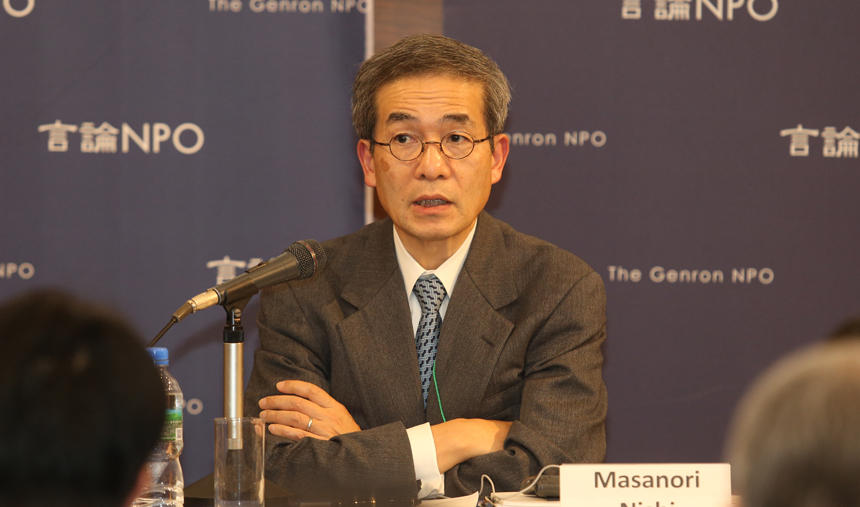
Former Japanese Administrative Vice-Minister of Defense Masanori Nishi stated that back in the 90s, the main theory at the Japanese Defense Agency was that China was home to "foreign" concepts that differed from the concepts of sovereignty and strategy that are part of the "international society" built by the West. From that perspective, he agreed with Prestowitz that the current friction between the U.S. and China is structural in nature and shows every sign of continuing long into the future. This is why he believes that Japan, which lies geographically between the U.S. and China, must build a forum for the U.S. and China to engage in dialogue, and simultaneously formulate a plan for what to do when that dialogue fails.
Is Trump actually aiming to increase U.S. dependence on China?
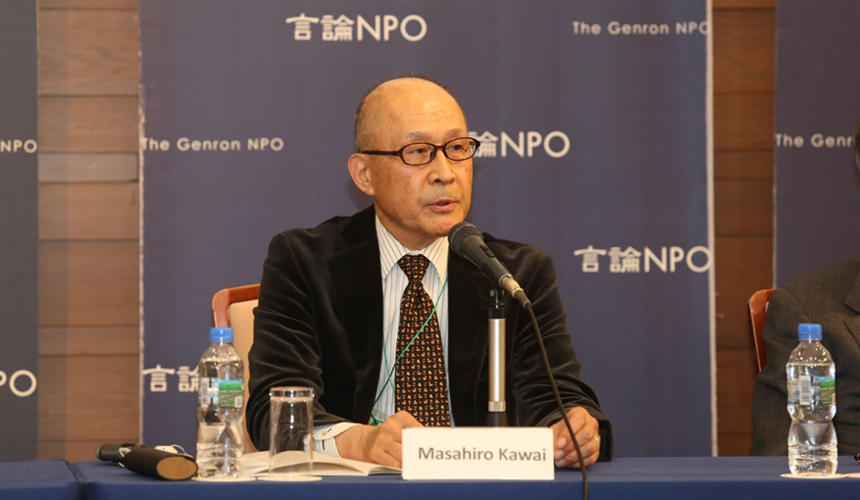 Economist Masahiro Kawai responded that the rise of China does not necessarily mean the West will lose its economic superiority. Kawai noted that while China hopes to have its GDP overtake the U.S. by 2030, the American and European economies will continue to expand at the same time. Moreover, India's economy is catching up to China's, and looking at the liberal democracies as a whole, Kawai stated that they could be ready to economically surmount even China in 50 years.
Economist Masahiro Kawai responded that the rise of China does not necessarily mean the West will lose its economic superiority. Kawai noted that while China hopes to have its GDP overtake the U.S. by 2030, the American and European economies will continue to expand at the same time. Moreover, India's economy is catching up to China's, and looking at the liberal democracies as a whole, Kawai stated that they could be ready to economically surmount even China in 50 years.
Japan's contribution to the U.S. strategy towards China
David Shear, Former Assistant Secretary of Defense for Asian and Pacific Security Affairs under the Obama administration, praised the Abe government's commitment to the Japan-U.S. alliance. Shear explained that the Abe administration has "picked up the slack" in the region from America since the election of President Trump, and that Prime Minister Abe has "basically saved the Trans-Pacific Partnership." In addition, Shear described how Japan has worked hard to strengthen the Japan-U.S. alliance, while it adjusts its relations with China and "do what we need to do to balance China."
Differences in approach exist, but all on the U.S. side agree that Japan and the U.S. should cooperate in restraining China
 Former Special Assistant to President George W. Bush Douglas Paal is a Distinguished Fellow at the Carnegie Endowment for International Peace, and he described the essence of the communist system as one of control through power. Paal said that diplomatic policies enacted through such systems promote strong attitudes used to wear down opponents, and when pressure doesn't result in change in an opponent's behavior, backing down is preferred. He noted that since criticism of China's actions in the South China Sea has increased, China has taken steps to formulate a code of conduct COC for its interactions with ASEAN countries. The point is for allies such as the U.S. and Japan to confront China, such that if the system in China can't be changed, at the very least there is a chance that China's external behavior can be controlled.
Former Special Assistant to President George W. Bush Douglas Paal is a Distinguished Fellow at the Carnegie Endowment for International Peace, and he described the essence of the communist system as one of control through power. Paal said that diplomatic policies enacted through such systems promote strong attitudes used to wear down opponents, and when pressure doesn't result in change in an opponent's behavior, backing down is preferred. He noted that since criticism of China's actions in the South China Sea has increased, China has taken steps to formulate a code of conduct COC for its interactions with ASEAN countries. The point is for allies such as the U.S. and Japan to confront China, such that if the system in China can't be changed, at the very least there is a chance that China's external behavior can be controlled.

President Emeritus and WSD-Handa Chair in Peace Studies at the Pacific Forum Ralph a stated that the changes underway inside China are worthy of attention. When China joined the WTO in 2001, Deng Xiaoping's ideas on economic reform were introduced to establish a market-oriented economy in China. However, the increase in government controls over the last decade show that Deng's philosophy has not been inherited by the next generation of leaders. Cossa believes that the goal of Japan-U.S. cooperation should be a return to those original ideas.
Next, the Japanese panelists spoke about Japan's role in the Japan-U.S. alliance.
Will Japan-China cooperation influence the Japan-U.S. alliance?
Former Japanese Maritime Self Defense Fleet Commander in Chief Yoji Koda stated that the heart of the conflict between the U.S. and China is the question of which country will lead the world within the next few decades. He said that because military war is no longer possible, the two countries are putting everything into fighting on the battlefields of economy and technology. Kudo suggested that if Trump is re-elected, he may take even bolder action as he won't have to worry about earning votes, which could intensify the conflict.
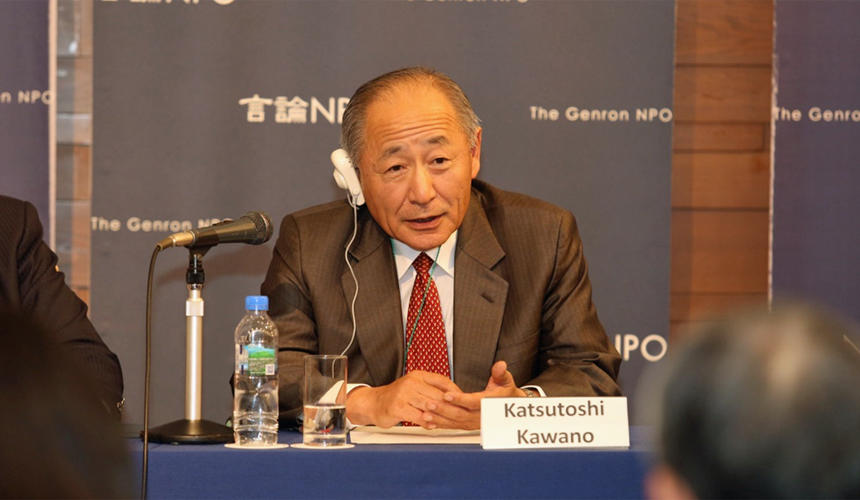
Katsutoshi Kawano is the former Chief of Staff of the Japan Self-Defense Forces, and he clearly stated his belief that Japan should stand on the side of the U.S. in its conflict with China. He noted that with the enactment of the Hong Kong Human Rights and Decency Act last November, U.S. criticism against China is extending as far as the question of human rights in China. Kawano suggested that human rights constraints will inevitably appear in communist governments, and emphasized that the U.S.-China conflict is deepening, becoming a more profound conflict between systems.
Japan needs a diplomatic strategy that will help protect the peace during the long period it will take for China to change
Professor Akio Takahara of the University of Tokyo stated his belief that the U.S. has steeled itself to engaging in a long-term battle for hegemony with China, but disagreed with Koda and Kawano's assertions regarding the direction Japan should take, stating that it is unrealistic for Japan to choose one over the other. The struggle between the U.S. and China is not a simple one, he explained, using the example of Phase 1 of the U.S.-China trade deal, which aims to strengthen economic ties between the two countries. As a country, Takahara feels that Japan's greatest benefit lies in achieving a balance between its alliance with the U.S. and continued development of its relationship with China.
As former Ambassador to China, Yuji Miyamoto argued that Japan has no option but to stand against China on security matters through its alliance with the U.S., but that this doesn't mean that it must be tolerant of economic and military clashes between the U.S. and China. Miyamoto feels that Japan's future diplomatic role lies in proposing means of avoiding confrontations as the U.S.-China conflict becomes a long-term one. Then, by engaging in dialogue with both the U.S. and China, Japan can help the two countries gain a better understanding of their misapprehensions regarding each other and ward off any possible clashes before they happen.
The Japan-U.S. alliance extends far beyond the realm of national security
As Session 1 was drawing to a close, Shear declared that while most tend to see the Japan-U.S. alliance as one of national security, its significance extends far beyond. He explained that for the U.S. to face China, it must play the diplomatic game in Northeast Asia, and that it will be necessary to use Japan's influence as a lever to encourage China to behave as the U.S. hopes. The other American speakers shared Shear's sentiments.
Kudo emphasized that in order to further expand the Japan-U.S. alliance, it is important to have an environment in which the countries can discuss various topics and with that, he brought Session 1 to a close.


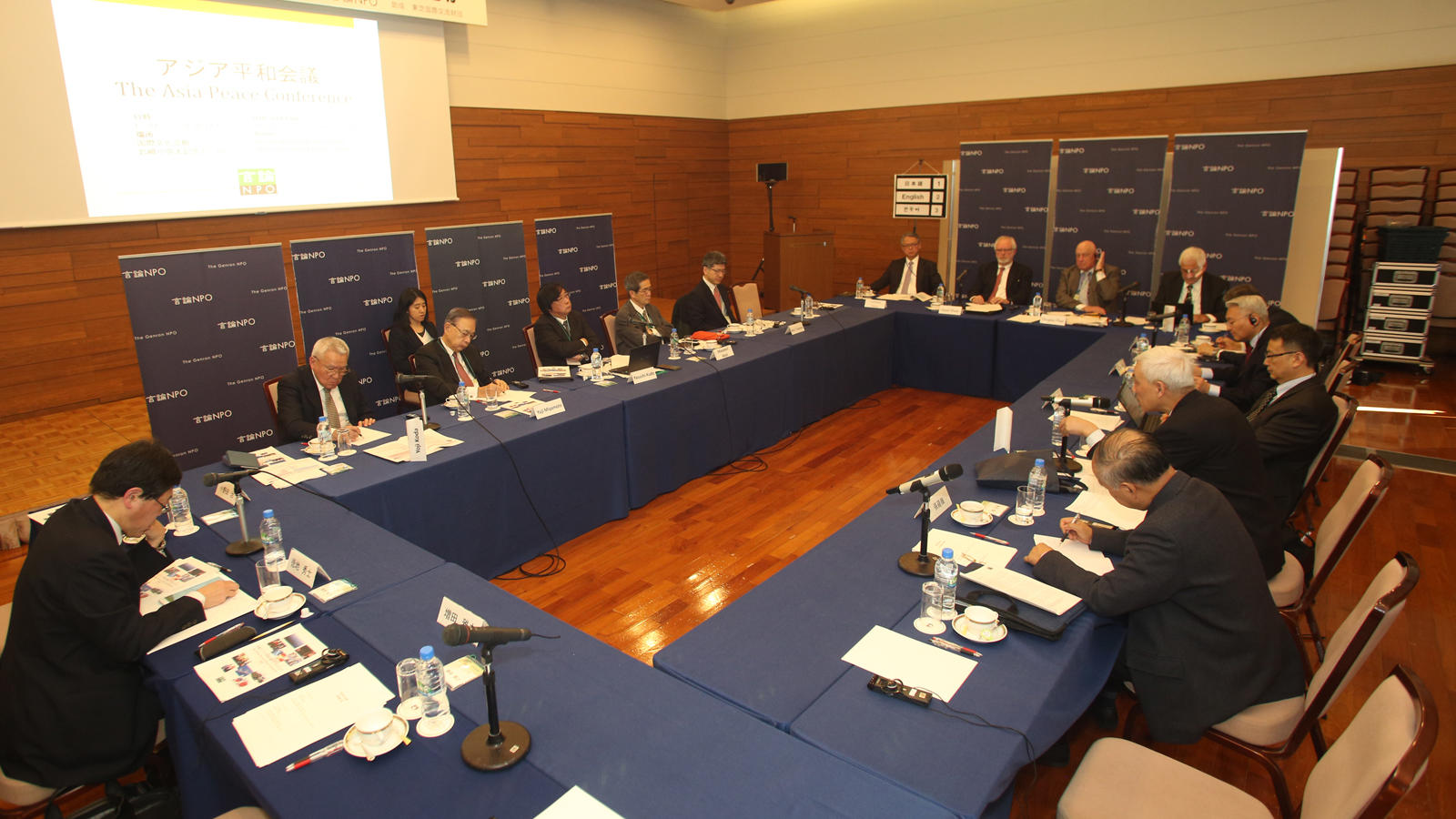
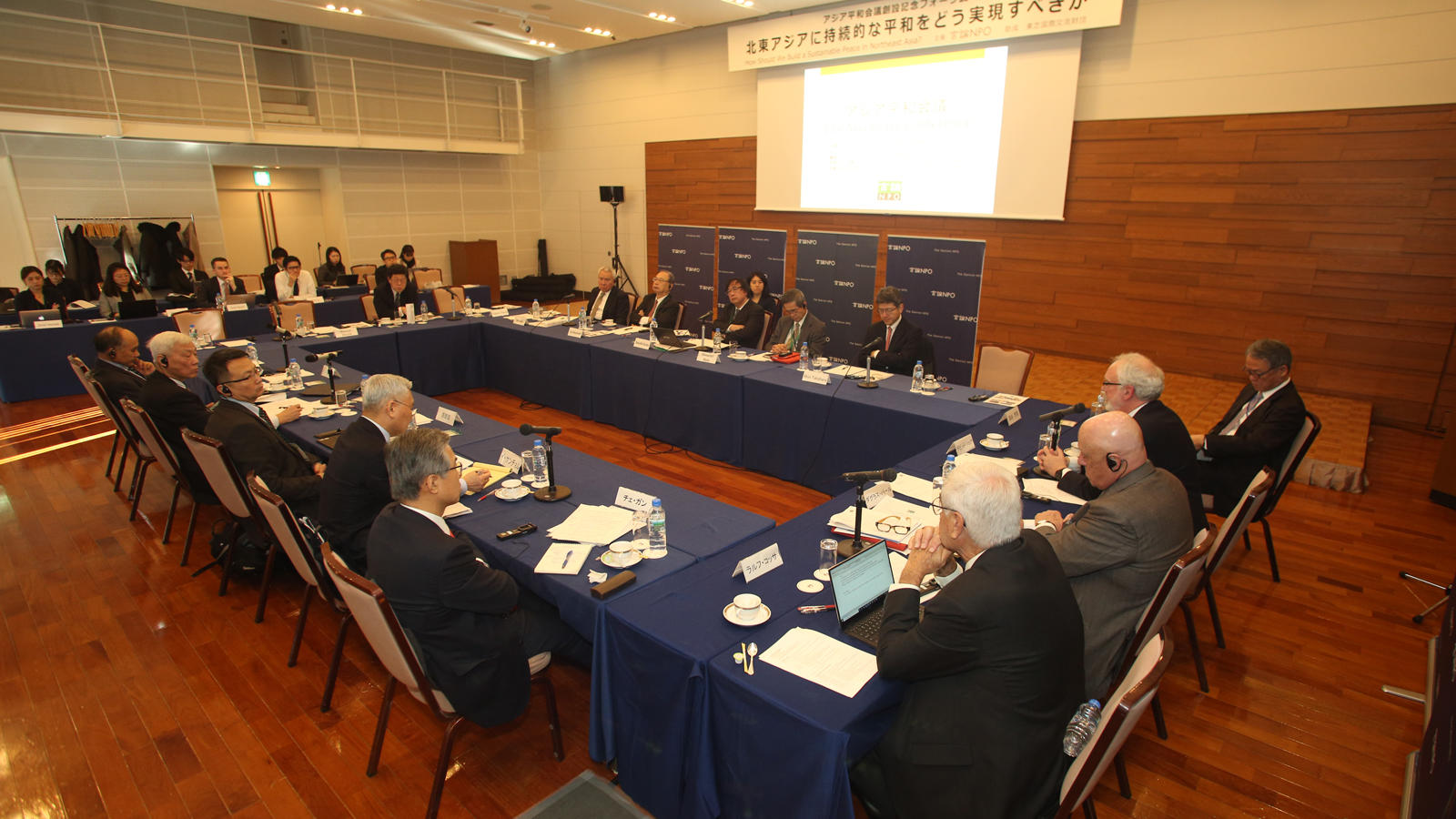

Post a comment